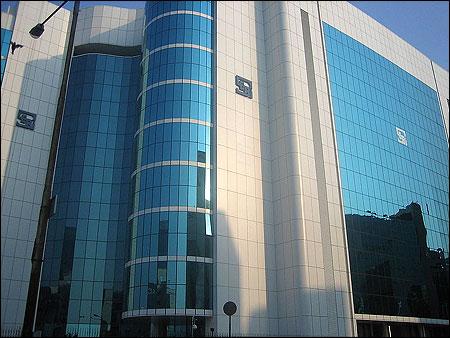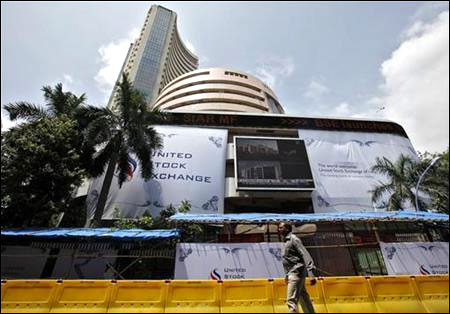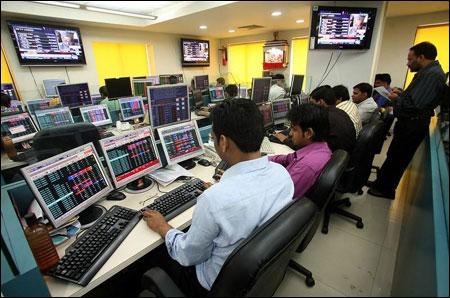Photographs: Jimmy Vikas/Wikimedia Commons Palak Shah in Mumbai
The frequent flash crashes - sharp falls in stocks or indices within minutes - have the Securities and Exchange Board of India (Sebi) worried. The board has decided to initiate an investigation into these incidents.
On Friday, the CNX Nifty fell nearly seven per cent within seconds - from 5,300 to 5,000 - causing panic amid traders and institutional players, as stop losses were triggered. The National Stock Exchange (NSE) has begun a preliminary inquiry, which will be followed by a Sebi probe, according to senior officials with the market regulator.
Friday's incident wasn't a one-off. In the recent past, there have been several incidents where stocks or markets fell sharply.
For instance, on Friday itself, the Infosys stock fell 20 per cent in the first half of the trading session. Similarly, the Bombay Stock Exchange had to annul all trades on 'muhurat day' in 2011 due to extraordinary volumes.
In June 2010, the Reliance stock suffered a similar fate when it fell 20 per cent within minutes, bringing down the Sensex by 600 points. The latter was attributed to a punching error.
Click on NEXT for more...
Sebi to probe flash crashes
Photographs: Danish Siddiqui/Reuters
Market players said these sudden drops were caused due to algorithmic (algo) trading used by a number of large institutional players. That is, when a player executes a very large order in minutes (35,000 Nifty futures lots were traded on Friday), it destabilises the market.
A senior Sebi official told Business Standard besides the institutional players that executed the order, the investigation would look at possible solutions so as to improve risk management and surveillance measures in high-frequency trading areas.
Algo Trading India LLC, a research firm which has analysed the flash crash incident of Friday by using a reverse engineering mechanism, is of the view the error was most likely due to some changes made to algorithmic programmes.
Lokesh Madan, managing director of Algo Trading India LLC, said the crash was caused by a human error. "We used tick-by-tick data and simulated the exchange order to reconstruct the same order book.
Our conclusion is that such volatility was caused by somebody who tried to change the variable setting of an algo programme." Madan says a comprehensive report on the crash will be prepared in a couple of weeks and given to Sebi.
Click on NEXT for more...
Sebi to probe flash crashes
Photographs: Reuters
There have been concerns raised over algo trading and many have blamed the volatility in markets to high-frequency trading being allowed.
The process allows a trader to construct the entire market depth, taking advantage of which they can design programmes to hit at prices significantly away from the prevailing market price.
In other words, those with trading servers close to the exchange engines can execute their order in nano seconds. Brokers who do not have a co-location facility have exposure to only top five buy or sell orders and will not know if their order will get executed at a price far away from the prevailing price.
The NSE has sold close to 100 server spaces to brokers as co-location facilities. Though the BSE also offers algo trading, its market share in futures and options is not very significant.
The average volumes in NSE are down 20 per cent from the year's average. "Somebody took advantage of the low volumes. If the purpose was to further spoil the market sentiment, it was achieved, as trades are now bearish after 80-90 per cent of stop losses were triggered," said the chairman of a broking firm. The market regulator has recently issued guidelines for algo trading and aims to make the laws more stringent.





article